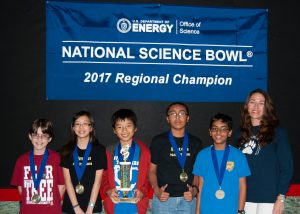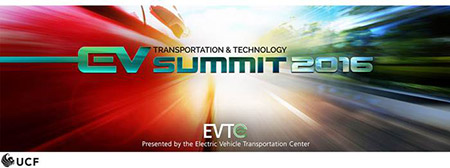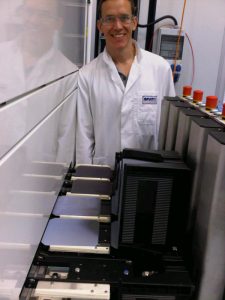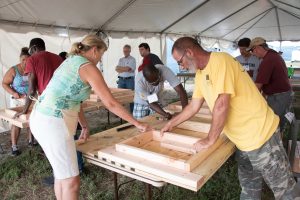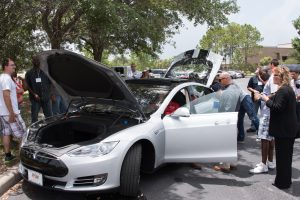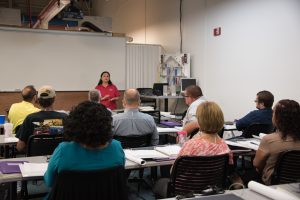By Sherri Shields
April 25, 2017
COCOA, FL–Elementary, middle and high school students—from Florida’s Panhandle to the Keys—will show off their solar cars, cookers and inventions during EnergyWhiz on Saturday, May 13th.
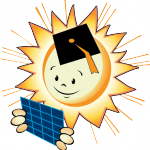
EnergyWhiz is a day-long event that showcases sustainable and renewable energy-focused products with real-world purpose that are designed, built and demonstrated by teams of students. Each project category requires students to share what they have learned with their peers, the public and industry professionals who also serve as project evaluators. Creative thinking, scientific know-how and effective communication skills all come into play at EnergyWhiz.
The 15th annual event is held from 10 a.m. to 2 p.m. on the Cocoa campus of the University of Central Florida (UCF) and Eastern Florida State College, at UCF’s Florida Solar Energy Center (FSEC), 1679 Clearlake Road. The event is free and open to the public.
DJ Chill Will—the world’s first solar-powered DJ and also a full-time, middle school environmental science teacher—will be emceeing the event in the morning. He will also be demonstrating photovoltaic equipment components and functions, teaching
scientific concepts behind photovoltaic technology, and educating on the applicability of using renewable energy to reduce environmental impacts. Food trucks and a showcase of electric vehicles will also be at EnergyWhiz.
Competitions will include: Junior Solar Sprint, Energy Innovations, Solar Energy Cook-off, and the Electrathon.
- The Junior Solar Sprint is a competition that challenges elementary and middle-school students to design, build and race model solar cars. Awards are given based on vehicle design, quality of craftsmanship, innovation and vehicle speed.
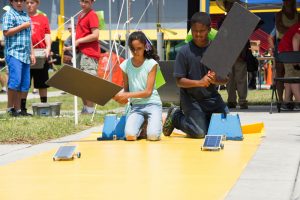
Students design, build and race solar-powered cars in the Junior Solar Sprint. Credit: Sherri Shields
- The Solar Energy Cook-off challenges students in grades 4 through 12 to design and build solar cookers and cook a recipe of their own creation using the power of the sun. In Top Chef-style, each dish will be judged by a panel of experts based on taste, ingredients, presentation and creativity.
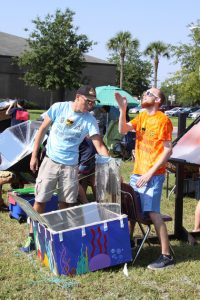
Tracking the sun to position the solar cooker is crucial in keeping an optimal oven temperature for cooking. Credit: Cheryl Carson
- The Energy Innovations program is a full-scale solar electric design and marketing challenge for middle and high school students. Each participating team designs and constructs a product or artistic work powered by photovoltaics, also called solar electric cells. Teams also create marketing pieces—such as brochures, fliers, and posters—to accompany their products.
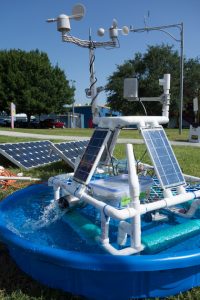
Energy Innovations challenges students to design, engineer and market full-scale, solar-powered devices that have real-world applicability. Credit: Liza Robles
- The Critter Comfort Cottage competition challenges students in grades 4 through 12 to demonstrate their understanding of energy efficient and eco-friendly building design for a pet of their choosing.
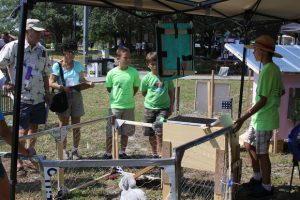
Students design energy-efficient and eco-friendly homes for pets in the Critter Comfort Cottage. Credit: Cheryl Carson
- The Electrathon is a competition for high school students and older. The go-cart-type vehicles, powered by an electric motor and batteries, must be skillfully designed, built and driven to maximize distance traveled within a given time limit.
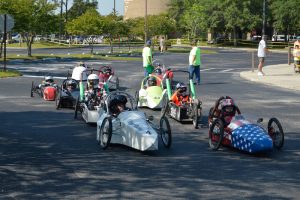
Go-cart-type electric vehicles are skillfully designed, built, and driven to maximize distance traveled with a time limit. Credit: Alik Smith
This year’s EnergyWhiz sponsors include: Florida Power & Light Company, Duke Energy, Publix Super Market Charities, Airport Chrysler Dodge Jeep Ram, American Muscle Car Museum, LifeStyle Homes, Solar-Ray, Inc., and Smart Electric Power Alliance.
“The success of EnergyWhiz is in large part due to our volunteers and sponsors,” said Susan Schleith, K-12 Education Director at FSEC. “Whether you can spare a couple of hours or the whole day, you can help make EnergyWhiz a continued success.” Volunteers and sponsors can sign-up at: http://www.fsec.ucf.edu/go/energywhiz.
For more information about EnergyWhiz, visit http://www.fsec.ucf.edu/go/energywhiz, watch a video about the EnergyWhiz at http://vimeo.com/9522310, or contact Susan Schleith, K-12 Education Director, at susan@fsec.ucf.edu or Sherri Shields, Communications Director, at sherri@fsec.ucf.edu.
###
PR17-02
